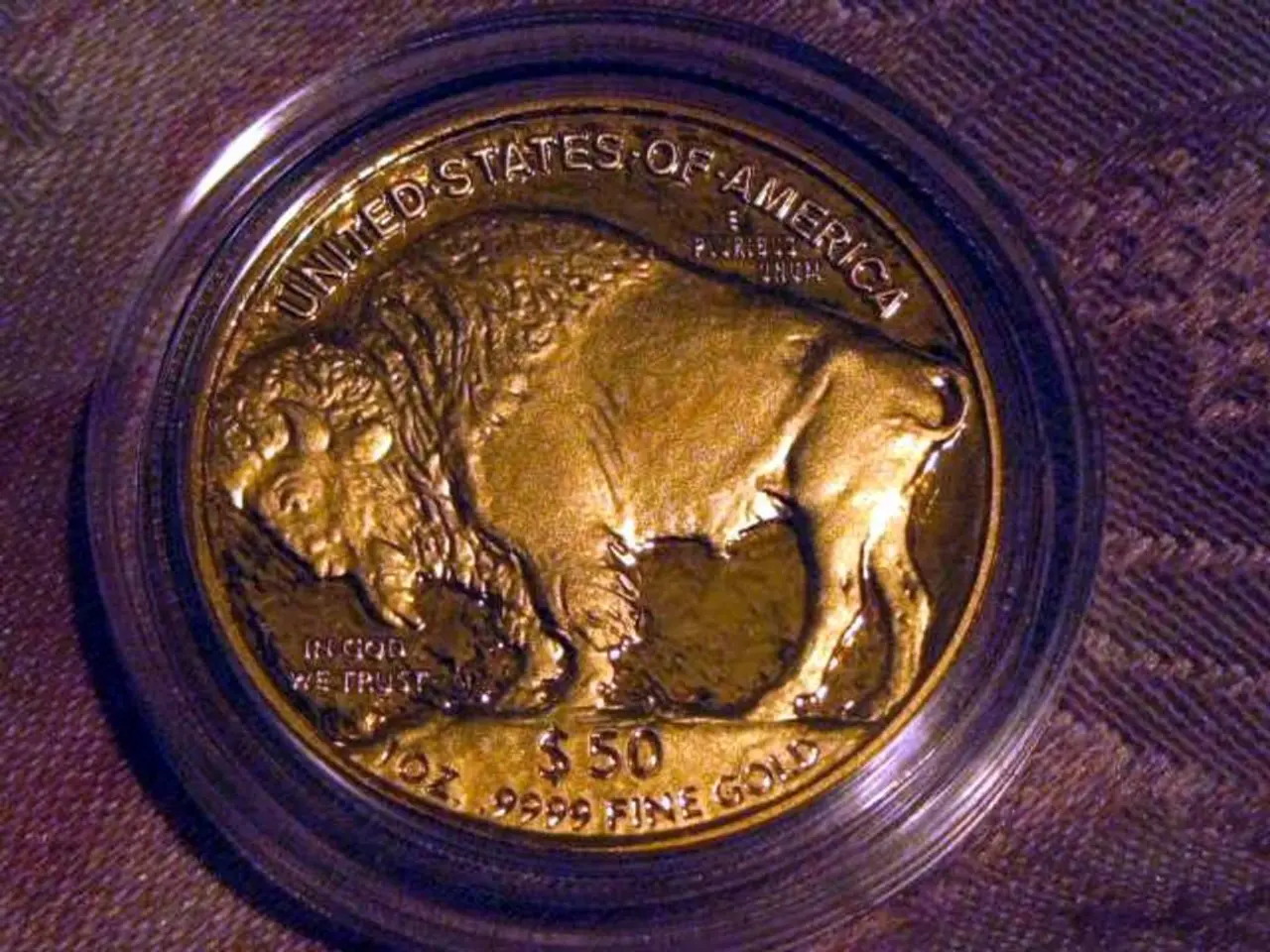Western Union Plans to Integrate Stablecoins and Artificial Intelligence for Enhanced Operational Efficiency
Western Union, the global leader in cross-border, cross-currency money movement and payments, is charting a new course for its future with its Evolve 2025 strategy. The strategy focuses on optimizing retail experiences, accelerating digital offerings, delivering accessible financial services, and developing operational excellence.
At the helm of this transformation is Devin McGranahan, the President and CEO of Western Union. Under McGranahan's leadership, the company is making significant strides in its Consumer Services business. In the second quarter, the growth in this segment was driven by the acquisition of Eurochange Limited and other initiatives to expand its Travel Money business in Europe.
The acquisition of Eurochange Limited, a U.K. foreign exchange expert, completed in April, boosts Western Union's consumer services segment, expands its network of owned locations, and increases the products and services available to its customers. This move has contributed to a 39% growth in the Consumer Services business in the second quarter.
In a bid to stay competitive in the evolving fintech landscape, Western Union is also implementing Artificial Intelligence (AI) to reduce time, cost, and complexity across operations, marketing, and customer service. The company's presentation states, "We're using AI where it matters - to do more, faster and smarter."
However, the second quarter saw a 4% decrease in revenue for Western Union. This decrease was due to a slowdown in its North America retail business and lower revenue in Iraq. The business in Iraq has been impacted by sanctions placed on 14 Iraqi banks for more than a year.
Despite the revenue decrease, Western Union sees opportunities in the use of stablecoins for remittances. The company aims to use stablecoin technology to reduce friction and float in cross-border transfers, provide on-ramps and off-ramps for crypto-fiat conversions, reduce reliance on intermediaries, and add crypto capabilities to its digital wallet.
Western Union sees stablecoins as an opportunity rather than a threat. Devin McGranahan, in a conversation with Bloomberg News, said, "last I checked, you couldn't spend stablecoin if you wanted to buy a Coca Cola." However, he emphasized that the integration of stablecoins is a strategic pivot to embrace blockchain technology and remain competitive.
The company's strategy toward stablecoins and crypto-fiat conversions for remittances focuses on leveraging stablecoins to accelerate cross-border payments, enable seamless fiat-to-crypto conversions, and provide a reliable store of value in volatile markets. Western Union aims to integrate stablecoins directly into its digital wallet infrastructure, allowing customers to buy, sell, and hold stablecoins within its platforms.
This move is driven by the recent regulatory clarity provided by the U.S. GENIUS Act, which establishes a federal framework for stablecoins, making it feasible for legacy financial institutions like Western Union to adopt them. Key strategic pillars include faster cross-border transfers, seamless fiat-stablecoin conversions, and a store of value for customers.
Western Union's strategic pivot to embrace blockchain technology and stablecoins signifies a commitment to innovation that has been a hallmark of the company for 175 years. This move is poised to set a blueprint for legacy payment firms adapting to the blockchain era.
Devin McGranahan, President and CEO of Western Union, sees opportunities in the use of stablecoins for remittances to reduce friction and float in cross-border transfers, provide on-ramps and off-ramps for crypto-fiat conversions, reduce reliance on intermediaries, and add crypto capabilities to digital wallets. Western Union aims to integrate stablecoins directly into its digital wallet infrastructure, allowing customers to buy, sell, and hold stablecoins within its platforms, leveraging stablecoins to accelerate cross-border payments, enable seamless fiat-to-crypto conversions, and provide a reliable store of value in volatile markets. This strategic pivot by Western Union is driven by the recent regulatory clarity provided by the U.S. GENIUS Act, which establishes a federal framework for stablecoins, making it feasible for legacy financial institutions like Western Union to adopt them. Western Union's commitment to innovation and embracing blockchain technology and stablecoins sets a blueprint for other legacy payment companies adapting to the blockchain era in the retail market. In order to optimize retail experiences, Western Union is also implementing Artificial Intelligence (AI) to reduce time, cost, and complexity across operations, marketing, and customer service, delivering operational excellence as part of its Evolve 2025 strategy.




